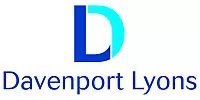Carry On Linking
The Court of Justice of the European Union (CJEU) handed down its decision yesterday on whether providing links to copyright protected materials located on other websites is a copyright infringement.
Impact
It is now clear that linking to freely available content on another website is not a copyright infringement.
The position is different in relation to material which is not freely available, such as pay-protected content. By providing a link to such material and circumventing a paywall, it is now clear that copyright in that content will be infringed.
The middle ground is less certain - whether there will be an infringement in relation to material which is freely available but governed by strict terms of use, such as licensed content where the licence limits publication to one site or prohibits commercial use.
Basis for the decision
The basis of the CJEU's ruling is what amounts to "communication to the public". This is an act reserved to copyright owners in relation to a wide range of works, including literary, musical, artistic works and films. EU law interprets communication widely in order to give a high degree of protection to copyright owners. It covers "any communication to the public" and "making available to the public by electronic transmission". UK law defines "communication" as including "broadcasting" and "making available".
There is no doubt that in providing a link to material, that material is made available to the public – but it does not necessarily infringe. The key question is who that public is. The CJEU says it must be a "new public" and this is how it arrived at the conclusion that linking to freely available material will not infringe copyright. It is not being communicated to a "new public".
So what is a "new public"? This is described by the CJEU as a public which was not envisaged by the copyright holder when communication to the public was initially authorised. If material is made freely available to all users of a website, it must be envisaged that the potential recipients of the material could be infinite in number and therefore include people viewing the material as a result of clicking on a link provided on another site.
Significantly, the CJEU said that the result would be the same even if the material were in some way framed on the site providing the link (although that might raise separate issues of copyright, trade mark and design infringement and passing off).
By providing a link to restricted material, a "new public" is able to access it because when the initial communication to the public was authorised, only a limited group of users was envisaged by the copyright owner, namely those who subscribed to the services of the original site. This includes works which are no longer available on the original site.
It is therefore possible that the communication of material which is subject to use restrictions will also fall within the CJEU's view of what constitutes a "new public". The way to look at it is whether the copyright holder took into account only a limited group of people when authorising the initial communication. If licence terms were put in place to govern the communication of the material to a limited public and by linking to that material, another site makes it available to a wider group of people, that must amount to a communication to a "new public" not originally intended by the copyright owner. This is likely to outlaw linking for commercial purposes where commercial use of the material was not originally licensed. Linking to freely available material which was only licensed for use on one website is unlikely to infringe because linking amounts to a communication not a re-publication of that material.
The decision brings welcome clarification to a much debated question, but it also raises other questions which the CJEU will have to answer another time.
Svensson and others v Retriever Sverige AB, Case C 466/12, 13 February 2014.
The content of this article is intended to provide a general guide to the subject matter. Specialist advice should be sought about your specific circumstances.


